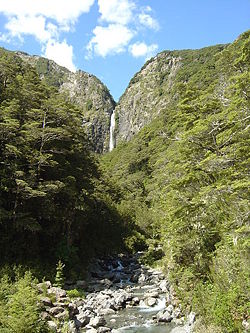Natural environment: Difference between revisions
Jump to navigation
Jump to search

imported>Milton Beychok m (Test) |
mNo edit summary |
||
| Line 14: | Line 14: | ||
* [[Natural resource]]s and [[Physical phenomenon|physical phenomena]] that do not originate from human activity and lack clear-cut boundaries, such as [[air]], [[water]], and [[climate]]. | * [[Natural resource]]s and [[Physical phenomenon|physical phenomena]] that do not originate from human activity and lack clear-cut boundaries, such as [[air]], [[water]], and [[climate]]. | ||
The natural environment is contrasted with the [[built environment]], which comprises the areas of Earth that are strongly influenced by humans. | The natural environment is contrasted with the [[built environment]], which comprises the areas of Earth that are strongly influenced by humans.[[Category:Suggestion Bot Tag]] | ||
Latest revision as of 06:01, 24 September 2024
The natural environment, commonly referred to simply as the environment, is a term that encompasses all living and non-living things occurring naturally on Earth or some region of Earth.
Terminology and concept
The concept of the natural environment can be broken down into a few key components:
- Complete ecological units that function as natural systems without massive human intervention, including all vegetation, animals, microorganisms, soil, rocks, atmosphere and natural phenomena that occur within their boundaries.
- Natural resources and physical phenomena that do not originate from human activity and lack clear-cut boundaries, such as air, water, and climate.
The natural environment is contrasted with the built environment, which comprises the areas of Earth that are strongly influenced by humans.
